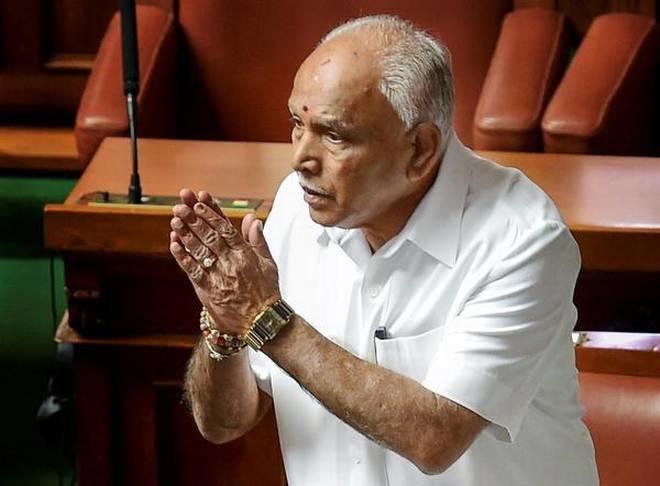The Lotus Wilts in Karnataka: BJP Out, Post-Poll Alliance to Form the Government

Image Courtesy: The Hindu
BS Yeddyurappa of the Bharatiya Janata Party (BJP) announced his resignation as Chief Minister of Karnataka at the end of a long speech on 19 May — as the drama surrounding the assembly elections appeared to have reached a conclusion.
The two-day CM — his voice wavering at several points during the speech in the Vidhana Soudha (Legislative Assembly) — spoke of how he wanted to do so much work for the benefit of the farmers in Karnataka. He mentioned the water problems, the farmer suicides, and spoke of how he wanted to implement a farmer loan waiver.
While Yeddyurappa was speaking — and before he announced his resignation — Siddaramaiah interjected with the demand that the motion for a trust vote be tabled. But Yedyurappa, who took oath as CM on 17 May, resigned before the trust vote.
The controversy surrounding the Karnataka elections arose when the Governor had invited Yeddyurappa to form the government despite the BJP not having an absolute majority. The Congress and JD(S) post-poll alliance had more than the requisite number of seats to form the government in the state. This resulted in the midnight hearings in the Supreme Court. The Supreme Court had refused to stay the Governor’s decision to invite Yeddyurappa. However, the court passed an order for the trust vote to take place on 19 May, rather than within the 15 days that the Governor had stated.
The Court had also ordered that a pro-tem (temporary) speaker be appointed. This too, however, bred its own controversy. As per convention, the pro-tem speaker is appointed on the basis of seniority. The Governor had appointed KG Bopaiah. But in the scheme of seniority within the Karnataka assembly, there are at least two more members who are senior to him — RV Deshpande and Umesh Katti. This move was also challenged in the Supreme Court.
However, the impropriety apart, today’s outcome could have been the result of several factors. One is that the post-poll alliance was aware that attempts would be made to reduce their numbers. To back this, they released several audio recordings, including one allegedly featuring BJP leader G Janardhana Reddy who called Congress MLA Basanagouda to switch sides. Another factor could have been that the Supreme Court ordered the trust vote to happen so quickly. Had the 15 days been allowed, the BJP would have had more wiggle room to thin the numbers in the alliance. Despite the vast sums invested in maintaining Amit Shah’s image as the ‘election guru’, the outcome has not been favourable to the BJP.
But the question is — is this the end of the story?
Get the latest reports & analysis with people's perspective on Protests, movements & deep analytical videos, discussions of the current affairs in your Telegram app. Subscribe to NewsClick's Telegram channel & get Real-Time updates on stories, as they get published on our website.
























